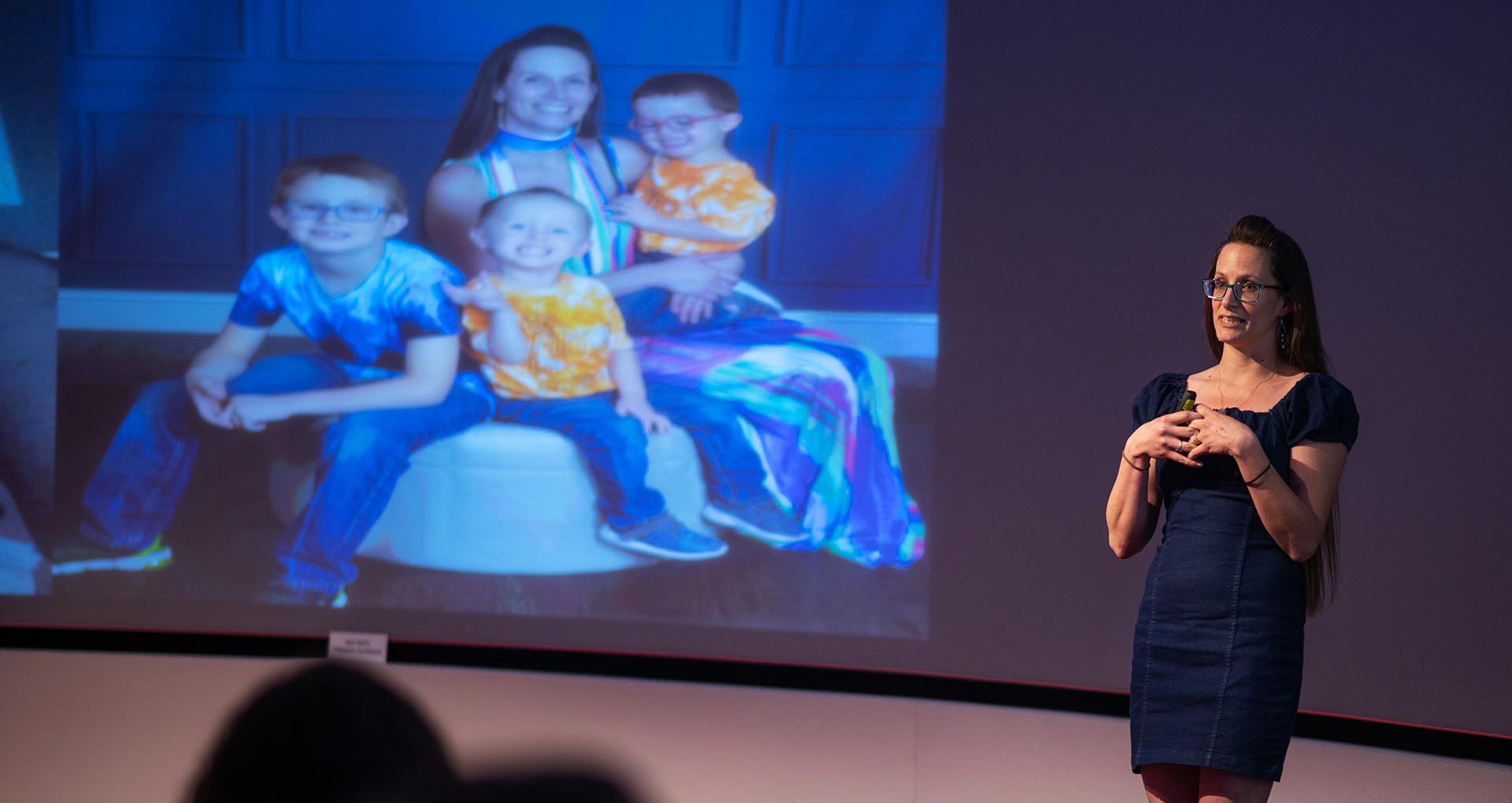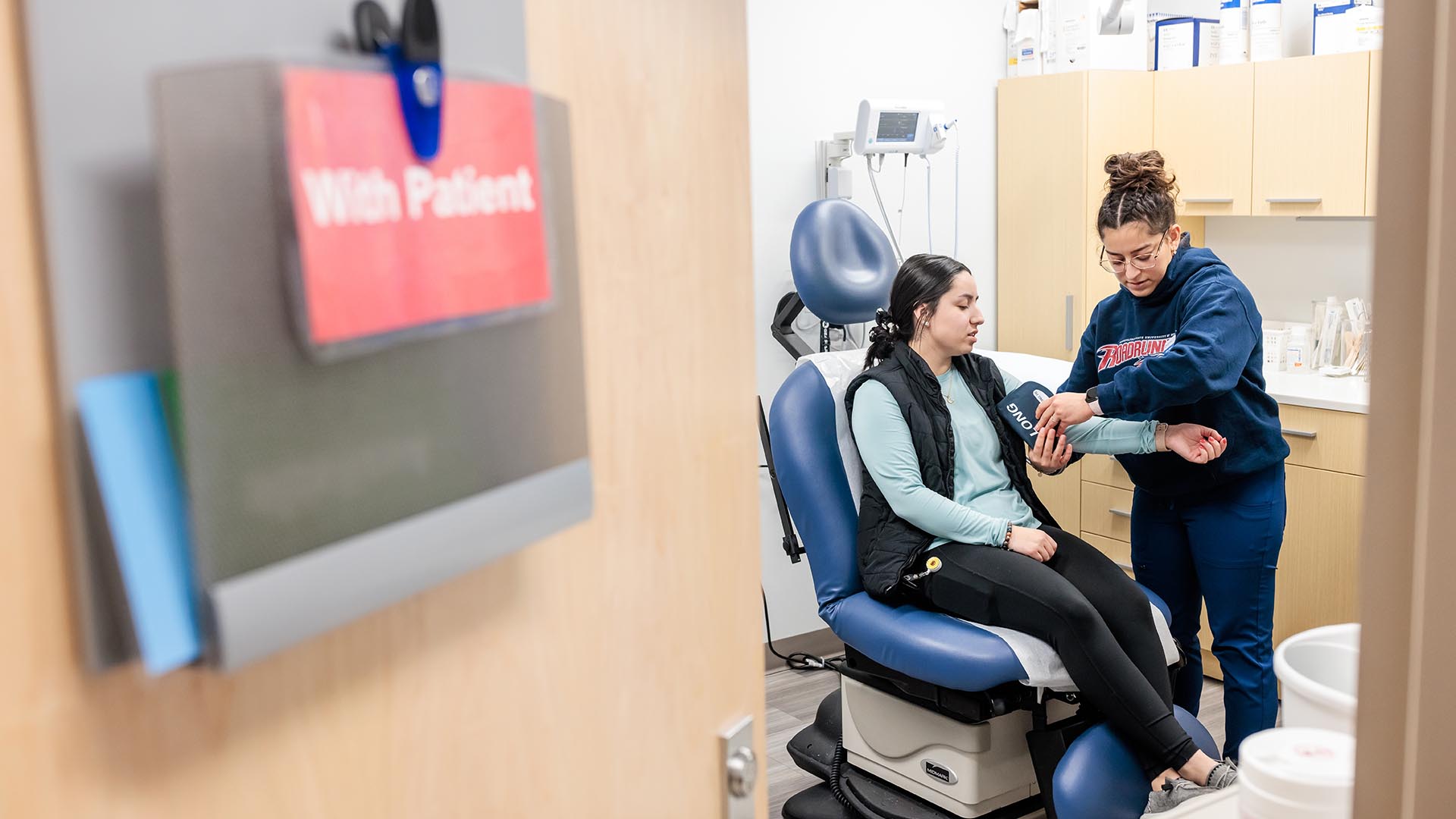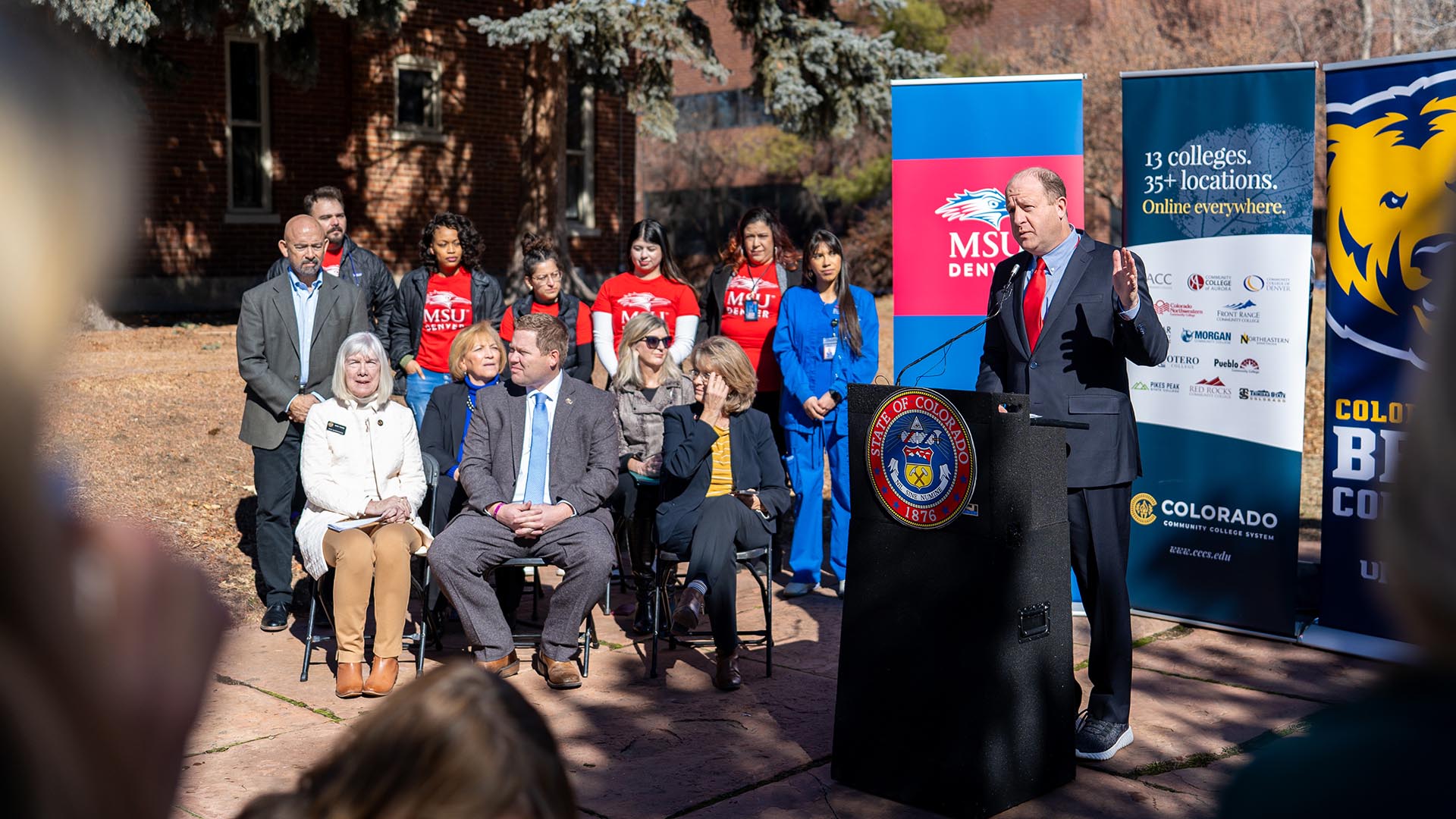Substance abuse and the mother-child bond
Graduating student’s research sheds light on how addiction impacts new moms.

When Ashley Miller walks for her bachelor’s degree in Human Services at Commencement, she will do so with honors and a nearly-4.0 GPA. For her Honors Program thesis, she knew exactly what she would focus on: the impact of substance abuse on the mother-child bond.
It wasn’t easy getting to this place in her life. Her mother was an addict, and Miller grew up in the foster-care system. When she was 22 years old, someone brought meth to a party, and Miller decided to try it. She’d grown up wondering why her mom had chosen meth over her.
Ten years of pain and addiction followed. It wasn’t until she lost custody of her three boys that she finally embarked on a path toward recovery, but 15 months later she found out she was pregnant again, this time with twins.
“I dealt with emotion through drug use,” Miller said. “I was pregnant and overwhelmed, so I fell back to my old habits.”
RELATED: Colorado’s fentanyl epidemic
Miller lost custody of her twins for a short time, but it was the wakeup call she needed. She attained abstinence, got her boys back and enrolled at Metropolitan State University of Denver, concentrating in Addiction Studies.
“I learned through my own experiences and my education at MSU Denver that my mom didn’t choose meth over me,” she said, “but stigma kept her from receiving the proper treatment and care she needed to address her substance use. I learned substance use isn’t a moral defect but an addiction. This realization helped me to define my Honors research project, but I needed help bringing it into focus.”
Patrick Griswold, associate professor and clinical instructor in the College of Health and Human Sciences, met with her almost daily. Because he’s a registered nurse, he knew the effects of drugs on the brain.
“I knew what the drugs did to my life but not my brain,” Miller said. “He helped bring that aspect of addiction to the table.”

With Griswold’s guidance, Miller modified a questionnaire and distributed it to the women she knew from her counseling and group therapy. She hoped to get a couple dozen survey responses, but moms shared the survey with other moms they knew and so on. In the end, she received 253 survey responses.
“Through the use of a tool called the postpartum-bonding questionnaire, I researched how the mother-infant bond is impacted by substance use,” Miller said. “I modified the questionnaire to measure variables such as substance use, single- or dual-caregiver households and homelessness. The research showed that, in fact, substance use negatively impacts the mother-infant bond.”
Miller measured four specific areas in postpartum bonding: impaired bonding, rejection and pathological anger, anxiety and incipient abuse. Across the board, illicit drug use negatively impacted bonding.
RELATED: Recovery revelation
Miller wants to use her research and experience to help improve care for pregnant women and new moms.
“In Colorado, there are only 48 beds for moms who are seeking treatment,” she said. “And in my experience, pregnancy is the perfect storm for women with a history of drug abuse and trauma to use substances. Let’s face it: Who’s more emotional than a pregnant woman?”
She hopes that presenting this information to expectant or new moms will help them get the support and counseling they need. And just as important is providing the information to treatment providers. Miller believes people tend to use when they don’t know how to deal with trauma and abuse. If doctors start with past trauma, Miller said, the treatment will be better tailored to the mom.
Miller plans to continue this research in the MSU Denver master’s-degree program in Clinical Behavioral Health and Addiction Counseling, which she’ll start this fall.
“My goal is to help providers understand that if we help the mom get sober, we create generational change that breaks the cycle,” she said. “We have to get to the moms first — it’s an investment in them and the kids.”







